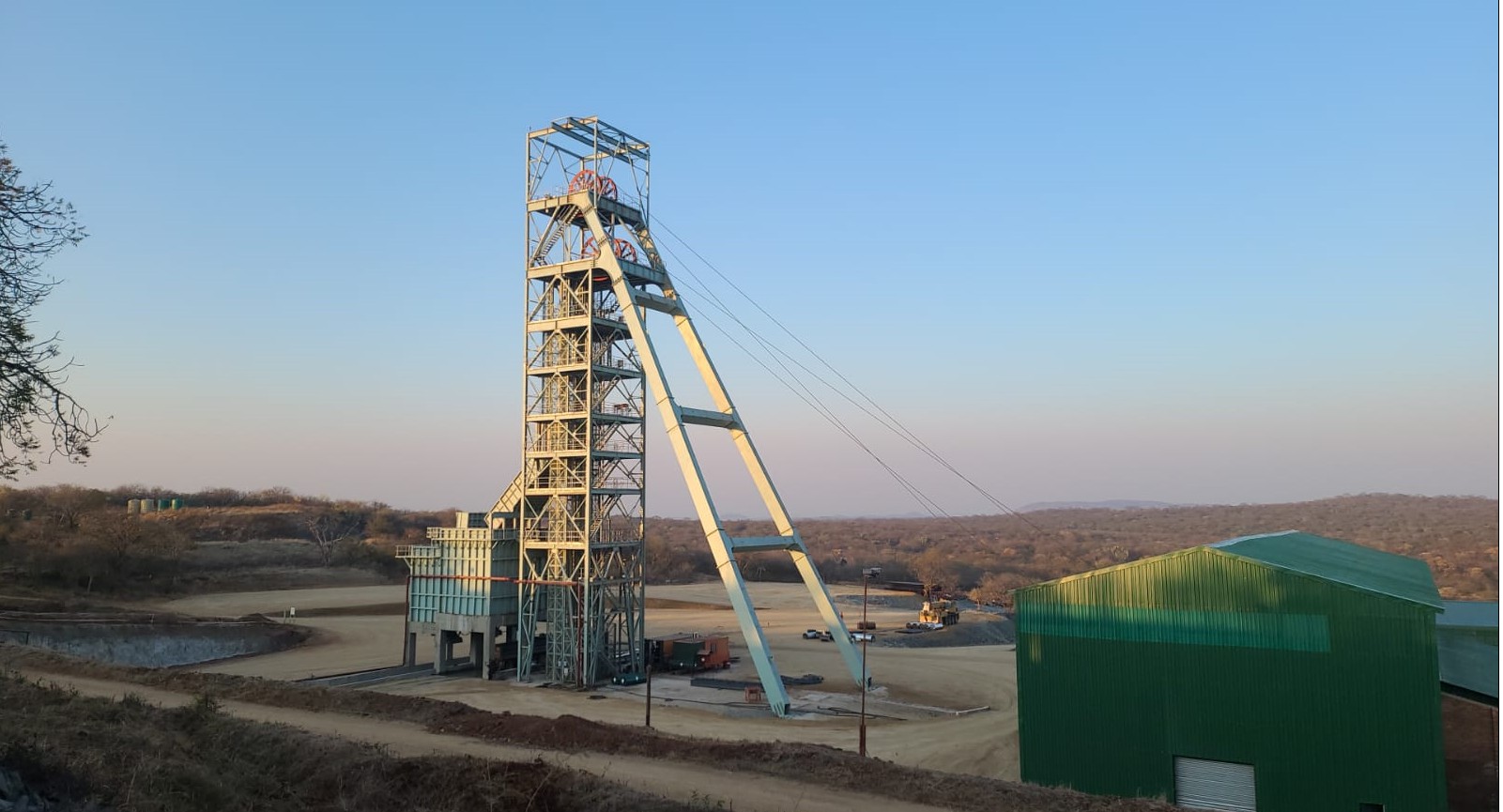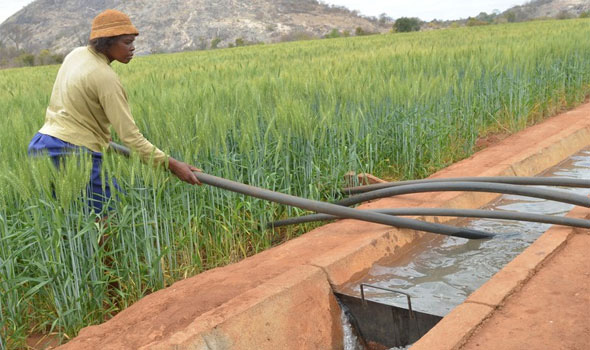Trump changes may not affect Zimbabwe
The return to the White House of US President Donald Trump this week has been watched closely both in the United States and around the world to see what effect his second term will have on international trade and finance.
Zimbabwe’s foreign policy has been under the Second Republic to be a friend to all and an enemy of none, so the Government will be moving carefully and remaining strictly neutral in any trade wars or other international squabbles. But we could be caught up in these and will need to manoeuvre very carefully to move back out.
Every political leader taking the top office in any country causes shifts, but the US President is the political leader of the largest economy and largest market in the world and the US currency is used for a majority of international transactions. So what the US President says and thinks and believes has a major influence on the global economy.
Donald Trump made it clear in his first term, and has stressed this in both his winning campaign and pre-inauguration comments that he regards the continued negative balance of trade for the US, that is US imports exceed US exports, as something that should be reversed, if necessary through imposing or increasing import tariffs to make imports more expensive.
He thinks this would help persuade American companies that have contracted manufacturing offshore to reopen American factories and would give opportunities for more American businesses to do more manufacturing locally.
He also sees tariffs as a form of economic pressure to achieve political ends. He has stated this week that he is likely to impose an extra 10 percent on the tariffs charged for imports from China as a way to apply pressure to stop Chinese companies exporting synthetic opiates to American addicts.
The United States has a serious drug emergency with more than 100 000 people a year dying of overdoses from opiate drugs, most of the addicts being launched on their addiction through a phenomenal loose prescription policy by American doctors who regard opiates almost as a first choice pain treatment. There have been studies and civil damages awards that American pharmaceutical companies ran campaigns to persuade American doctors incorrectly that there were very low addiction risks in such prescribing.
But before his inauguration President Trump said he would use tariffs to get Mexico and Canada, his two land-border neighbours, to effectively cut the flow of fentanyl, an exceptionally strong and addictive synthetic opiate, across their borders and has now announced that he is highly likely to impose that 10 percent tariff rise on Chinese goods from the beginning of next month.
While US tariffs, like almost all taxes in almost all countries need legislative approval, a US President can use emergency requirements to impose tariffs very quickly pending legislative approval later.
Zimbabwe almost certainly will not be affected by these potential tariff walls. The Zimbawbe-US trade, while growing, is still very small. The financial sanctions imposed by the US more than 20 years ago made a lot of ordinary unsanctioned trade almost impossible as American banks were not prepared to take risks in moving money to Zimbabwean accounts or accepting payments from Zimbabwean accounts.
As has been noted, enforcement of the sanctions in some cases went way beyond what was intended, and while most transactions could have been accepted they were so small that it was not financially viable for a bank to go through all the checks, so they simply declined to be in any Zimbabwe-US trade loop. The decline in sanctions and the different system of enforcement has yet to work its way through the trade system.
President Trump could dump remaining sanctions, although he did not do that in his first term, and there is a group of prominent Republicans would strongly dislike Zimbabwe’s Government and might well be able to exercise disproportionate influence as little Zimbabwe is hardly a hot number these days in most US political circles.
Zimbabwe was also excluded from the African Growth and Opportunity Act which allows several hundred products from 32 African countries into the US duty free.
Zimbabwe does use the US dollar as an alternative interior currency and as the major trading currency. These US dollars are largely outside the direct control of the US Treasury because of our minimal US trade and so would not be affected by any US policy. However the US could restrict export of banknotes to Zimbabwe, which would mean US dollars would have to be earned and spent electronically, perhaps not a bad idea.
Zimbabwe, however, could be affected by any trade wars. Almost all major trading partners of the US have made it clear that while they will respond to higher US tariffs their response will be measured and designed not to escalate a tariff war. In other words they will give tit for tat but not initiate a tariff war and not go beyond what President Trump imposes on American imports of their goods and services.
Zimbabwean miners and farmers in such a tariff war may well be able to create new markets to replace American suppliers whose products suddenly become more expensive but our business people need to be careful as a tariff bump could well be very temporary.
The main downside effect of any trade wars will be the backing down from a freer trade world towards a more protectionist one. This will severely limit global economic growth and could even trigger global recession and even depression.
Zimbabwe also has to think along with the rest of Africa where the markets will be for the continental industrialisation that everyone wants to see. The largest single market is still the US and most of the next range of markets belong to major industrial exporters where it will be difficult to establish a foothold with ordinary products.
This places more pressure on Africa to implement the African Continental Free Trade Area as fast as possible to create the continental market, which will in turn drive growth faster in a positive feedback. As almost all African economies are growing, this new wealth will be spent and it can either be spent more inside Africa or more outside Africa. AfCFTA will see more inside Africa.
AfCFTA will also help insulate Africa from trade wars between other regions and create opportunities for investors from the other regions to establish their African subsidiaries sooner rather than later so they are doing their manufacture within AfCFTA and so meeting the rules of origin for free trade.
A properly developed AfCFTA would also be able to negotiate the most favourable tarde openings with other large economic areas, whether really big countries or other continental free trade areas.
The major local effect is likely to arise from this week’s suspension of aid programmes and the US is a major donor to health programmes, especially the battle against Aids which absorbs almost two thirds of all US aid to Zimbabwe.
The dropping of the US Presidential Emergency Plan for Aids Relief, Pepfar, is of major concern throughout southern and eastern Africa as it would require significant budgeting to replace unless there was to be unacceptable retreat.
The US is also likely to be very dubious about international programmes to fund action to combat climate change or prevent it getting worse, considering that Donald Trump has already pulled the US out of the Paris Accords that settled such financing and has made it clear that he does not believe in climate change. So there will be less money to go round and even if other developed states maintain their commitments and meet what they have promised, there will still be less money without the US chipping in.
From the way many commentators are talking we could well see over the next four years a sort of bi-polar world, the US versus the rest. But there will be many countries, like Zimbabwe, who would dislike being clamped into one bloc and would want to operate across all. That has been our successful foreign policy.
That sort of foreign policy also allows us to maximise our external relations and ensures we always have friends.-ebsinessweekl










